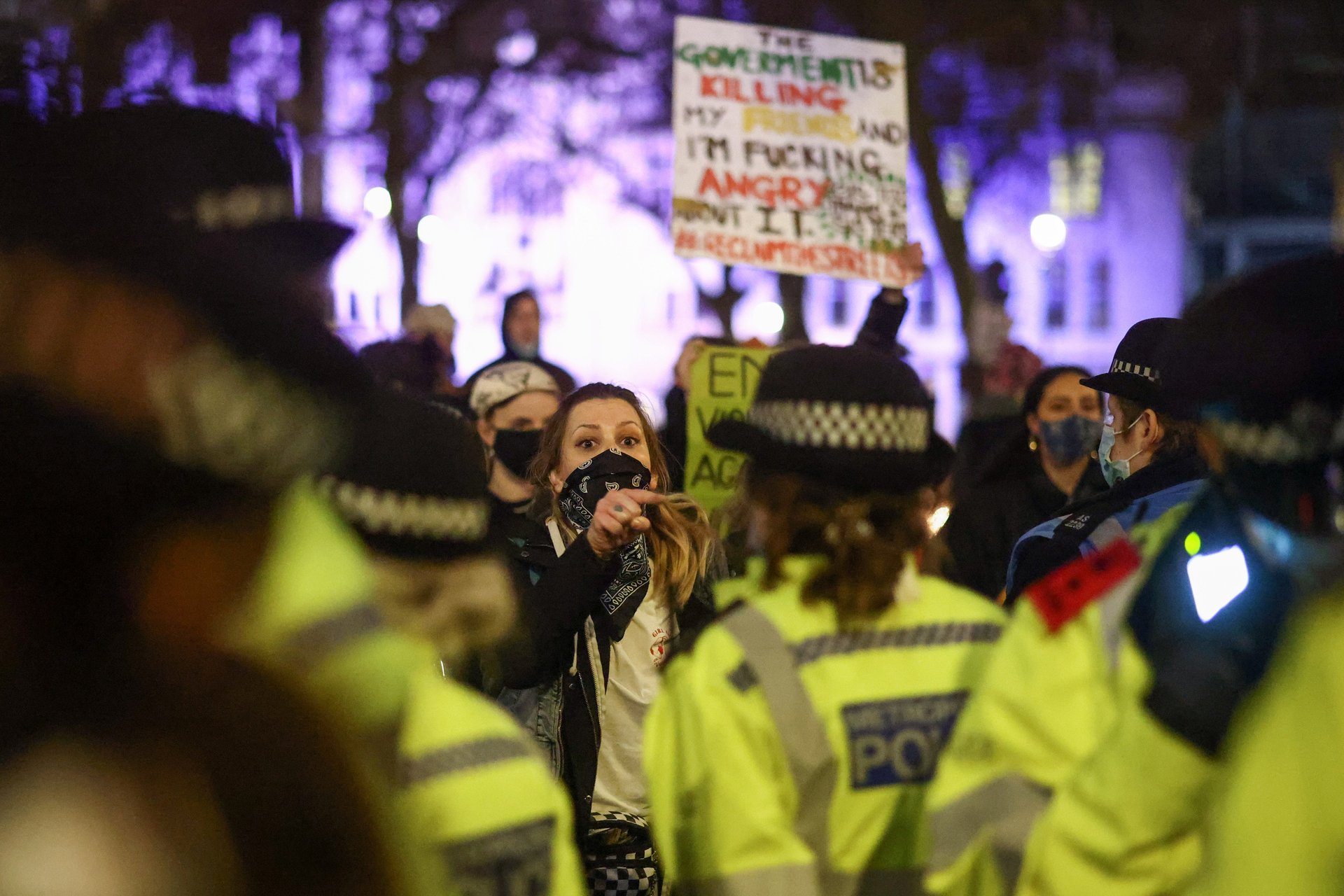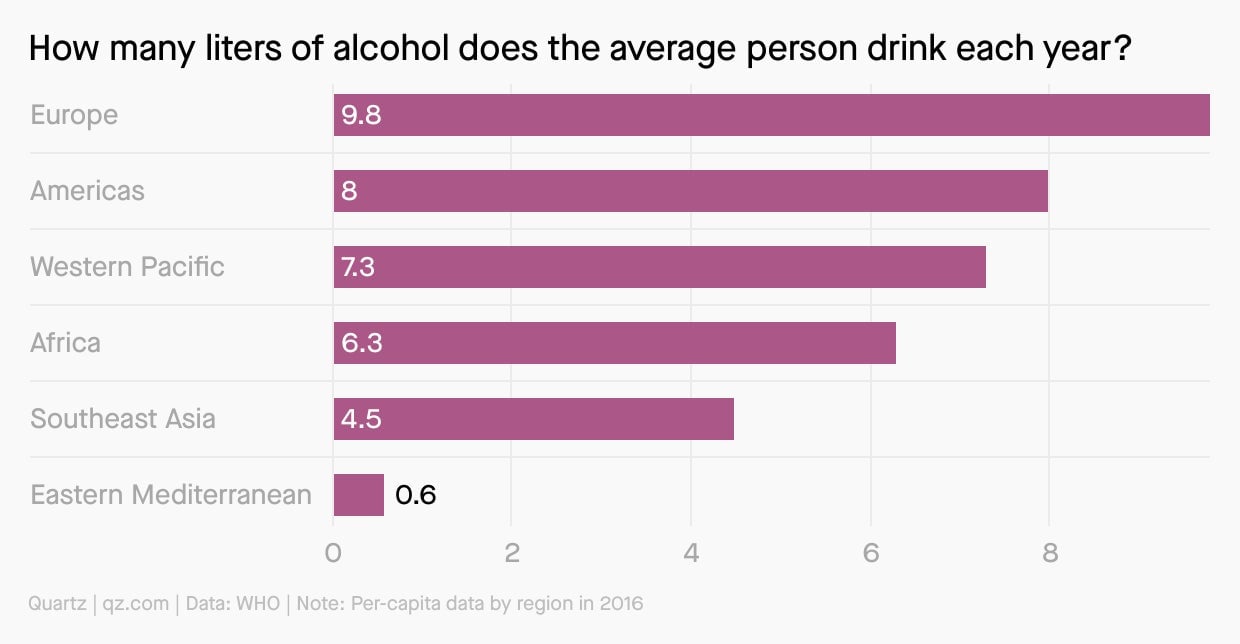London police, AstraZeneca jab, yoga unbanned
Good morning, Quartz readers!


Good morning, Quartz readers!
Here’s what you need to know
Vaccine rollout anger cost Angela Merkel’s Christian Democrats… The setbacks in two key regional elections are an amber warning for the German chancellor’s party in September polls, which will mark the end of the Merkel era.
…but a tax scandal may not boot the Dutch government. Leaders who admitted that thousands of citizens, many of them minorities, were wrongly accused of cheating on child tax benefits, will likely remain in office after a parliamentary vote that begins today.
Ireland and the Netherlands suspended the use of the AstraZeneca jab. They’re the latest countries to do so following reports of abnormal blood clots. The company has said the concerns are unfounded.
London’s Metropolitan police chief won’t resign. Cressida Dick faces criticism for the way her officers dispersed a vigil for Sarah Everard, who was murdered while walking home. And parliament debates a crime bill that will make it easier for cops to crackdown on protests.
Myanmar had its deadliest day since the coup. At least 38 protesters, and a policeman, were killed on Sunday, as Chinese-funded factories were torched.
Walmart and Tencent bet on a Japanese e-commerce giant. Rakuten’s shares surged 20% today after it said on Friday it would raise $2.2 billion by selling stakes to the US retailer and Chinese tech giant, as well as to Japan Post.
North Korea isn’t returning Washington’s calls. Pyongyang hasn’t spoken much to the US in a year, and has yet to acknowledge the new president.
Beyoncé made history at the Grammy’s. She’s now the woman with the most Grammy wins. Meanwhile, all four of the top honors were taken by solo women performers for the first time.
What to watch for
Nominations for this year’s Oscars drop today. Expect to see a lot of Nomadland and its director and screenwriter, Chloé Zhao. Expect to see a lot of Trial of the Chicago 7, Ma Rainey’s Black Bottom, and Mank, which all streamed on Netflix. And expect to see, for once, some actual diversity in the top categories.
As a result of the Academy’s long overdue but not insignificant effort to promote diversity within its ranks, combined with a strange year for the industry during which most eligible films had either limited or no theatrical runs, the Oscars might not be so blindingly white (or male) this time around. Zhao could be the first woman of color to receive a best director nomination. (That category will have at least one, but as many as three, women nominated.) The late actor Chadwick Boseman will certainly get a nod for his role in Ma Rainey, and maybe another one for his turn in Spike Lee’s Da 5 Bloods—another Netflix movie.
While there will always be a contingent of film purists who bemoan what streaming has done to the sanctity of the cinema experience, it has inarguably allowed for new kinds of voices to be heard on a global scale. That will likely be reflected in this year’s slate of nominees. But Hollywood hasn’t suddenly fixed its diversity problem. Quite the contrary: a McKinsey report released this week revealed the film industry is one of the least diverse sectors in the US. More than 90% of C-suite film executives are white. McKinsey also concluded that Hollywood leaves $10 billion on the table each year by not properly addressing this issue.
Celebrating the great work of diverse artists at the Oscars could force those who do the industry’s decision-making to realize, at long last, that not only do they have an obvious moral imperative to lift up new voices, but also an economic one.
Charting sobriety’s rise
Some drinkers were tired of waking up hungover, while others saw the negative toll alcohol had taken on their relationships. For whatever the reason, a new movement towards sobriety—for those who don’t consider themselves alcoholics—is birthing online communities and dating apps while lending increasing credence to the idea that sober living can be fun.

In the US and UK, where admitting sobriety meant admitting a previous issue, aspirational sobriety is reinventing the mocktail and writing a new guide to quitting alcohol, writes Sarah Todd.
Mo’ Money, Mo’ Manilow?
Why are Shakira, Neil Young, Bob Dylan, Barry Manilow, and other veteran musicians selling their catalogs to companies like Universal and Hipgnossis Songs Fund, which has spent more than $1.5 billion to snap up at least 61,000 songs?
Because almost every piece of content on your television, tablet, or phone, needs some sort of musical accompaniment. Royalties from having a song played in public, streamed by a Spotify or Apple Music user, or used in the opening credits of a TV show earn money, and licensing fees for projects like big-budget blockbusters, for example, might run into six figures.
While Dylan’s rumored $300-$400 million payday might be the high-water mark for catalogs now, Hipgnossis expects their portfolio to triple in value by the decade’s end. Big money for music rights might be here to stay, Samanth Subramanian writes, though that raises plenty of concerns.
✦Samanth Subramanian covers the future of capitalism. Read his stories and everything else we’ve got to offer with a Quartz Membership. Try it out for a week, free.
Surprising discoveries
Avatar retakes the revenue crown. A re-release in China took James Cameron’s 2009 blockbuster over $2.8 billion.
Alabama lifted its yoga ban. Public schools can now teach the practice, but instructors still can’t use Sanskrit terminology.
Africans are rethinking massive marriage celebrations. Economic pressures and social distancing have even made one government push for “scientific weddings.”
Dragons did well in the pandemic. Dungeons & Dragons, the table-top fantasy game, soared in popularity last year as quarantining gamers learned its ins and outs online.
NASA will map tiny microbial astronauts. A census of the trillions of bacteria, viruses, and other microorganisms will help identify the many microscopic inhabitants of the International Space Station.
Our best wishes for a productive day. Please send any news, comments, microscopic astronauts, and Avatar spoilers to [email protected]. Get the most out of Quartz by downloading our iOS app and becoming a member. Today’s Daily Brief was brought to you by Mary Hui, Tripti Lahiri, Adam Epstein, Katherine Bell, Tim Fernholz, and Jordan Lebeau.